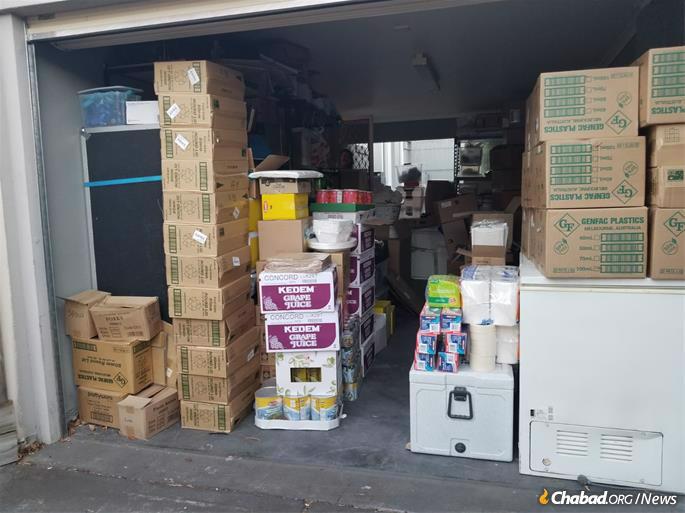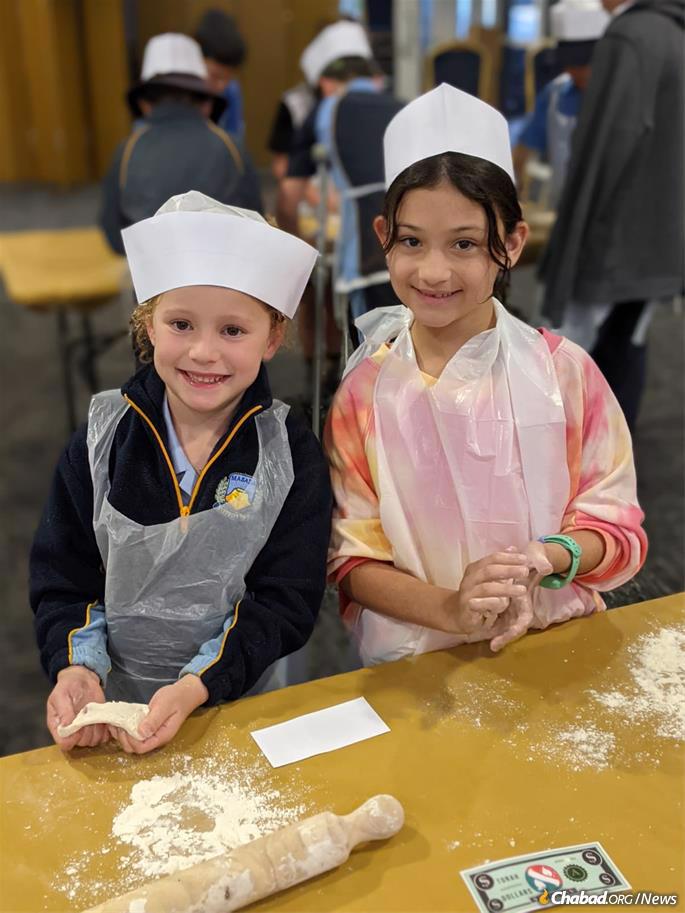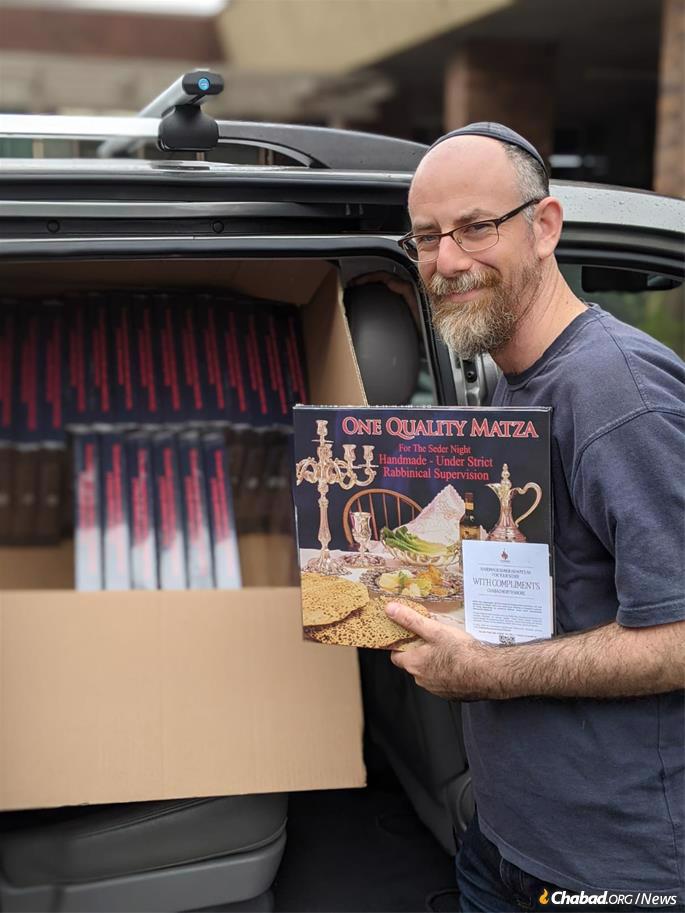As the coronavirus began its deadly march across the globe a little more than a year ago, Passover was on the minds of Jews worldwide. Seder without the family? Where to obtain matzah, kosher wine and other Passover essentials? For many of the Jews “Down Under,” this magnified their usual challenges. While many of their American peers could order their supplies with two-day shipping, in Australia and New Zealand, that wasn’t an option.
Jews in the metropolitan areas could shop at the local kosher supermarkets and even some major chains, or call their local Chabad-Lubavitch centers for help. In the sparsely populated regional areas, where sighting a rabbi is only slightly more likely than spying bigfoot, many rely on Chabad of Rural and Regional Australia’s in-person Seders, run by dozens of rabbinical students held in some of the continent’s most remote locales. An impossibility at that time, instead, Chabad of Rural and Regional Australia (RARA) shipped “Seder-to-Go” boxes to thousands of rural Jews, and Chabad of Auckland did the same in New Zealand.
This year however, while many around the world are still living in the shadow of Covid-19, and some countries are back in lockdown, Jews Down Under are celebrating a truly liberating festival. With borders hermetically sealed for more than a year now, virus cases are far and few between.
In New Zealand, Rabbi Mendel and Esther Hecht are hosting hundreds over the holiday with no social-distancing measures in sight. “Aside from the closed borders,” Rabbi Mendel Hecht tells Chabad.org, “the country is completely open; no masks, no distancing.”
But shut borders do have an impact on Jewish life especially. New Zealand is a small community, and without a strong infrastructure of its own, the community is reliant on its neighbors across the ditch, in Australia. “We have babies in need of a bris [circumcision], we don’t have our own mohel here,” says Hecht.
Thankfully, shipping is not impacted, and Chabad of Auckland has imported more than 200 pounds of shmurah matzah, hundreds of bottles of kosher-for-Passover wine and grape juice, 150 kosher chickens and almost 1,000 pounds of kosher beef. Some will be sold at cost to community members, while the bulk will feed the hundreds of guests at the Sedersand holiday meals that Chabad will be hosting.
The logistical challenge of large-scale Passover prep comes as the Hechts just moved to a new property (their third in two years) as Chabad sees massive growth, and their rented spaces couldn’t keep up.

‘Excited to Celebrate In-Person Again’
Meanwhile in Melbourne, Rabbi Menachem Aron and teams of volunteers prepare for Chabad of RARA’s rural and regional seders, hosted in 15 locations—from Coffs Harbor to Newport—with some attracting upwards of 100 participants.
For many rural Jews, Passover is their only opportunity to engage with a rabbi or even with fellow Jews, and that’s even more important to them now after last year’s visit had to be canceled.
But for those who are just too remote for a communal seder, Chabad of RARA will be shipping more than 1,000 “Seder-to-Go” kits across the continent, and Aron is teaching the Sederbasics to his remote congregation online.
“This is the most amazing thing I have stumbled across since living in the bush,” wrote Tamara in Innervell, after receiving her “Seder-to-Go” kit. In the scenic Blue Mountains region, Lana expressed similar sentiments: “Thank you so much for everything that you do,” she wrote. “I used to feel like I was all alone until I discovered that you were out there trying to connect with Jews like myself. Thank you for helping!”
In Sydney’s St. Ives, a neighborhood that sounds like South Africa (owing to decades of South African immigration, something which has been a boon for Australia’s Jewish community) and feels like the bush, Passover prep is in high gear.
“People here are excited to finally celebrate in-person again,” reports Rabbi Mendy Schapiro of Chabad North Shore. “Spirits are high; it’s almost as it was before Covid hit,” he says, noting that in the absence of the rabbinical students Chabad North Shore usually hosts from overseas, community members are filling their shoes and assisting with the many matzah deliveries the visiting rabbis would do.
“We’re really very lucky,” he says, “but we’re always fully aware that there can be another snap-lockdown at a moment’s notice.”











Start a Discussion